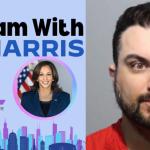On Friday afternoon, the Supreme Court granted certiorari in Oklahoma Oklahoma Statewide Charter School Board v. Drummond, and the companion case, St. Isidore of Seville Catholic Virtual School. Shortly before sundown, I dashed off a fairly-rushed post that considered why Justice Barrett may have recused. After some reflection, I will provide further thoughts.
St. Isidore of Seville Catholic Virtual School is represented by lawyers from Dechert, Perri Dunn (an Oklahoma Law Firm), and the Notre Dame Religious Liberty Clinic. Justice Barrett is an adjunct professor at Notre Dame Law School. In 2023, she earned nearly $15,000 from the law school. If Notre Dame University was a party, Barrett’s affiliation with the University would trigger a recusal. (Justice Jackson, for example, sort-of-recused from the Harvard affirmative action case because she was on the Harvard Board of Overseers.) In theory at least, a ruling for, or against Notre Dame University could affect Barrett’s employer’s bottom line. But I do not think that a clinic affiliated with the school is sufficient to trigger a recusal. Moreover, Justice Kavanaugh was also an adjunct at Notre Dame in 2023, earning $25,000. And Kavanaugh did not recuse from the Oklahoma case. Many others judges also adjunct at Notre Dame; I do not think they have recused when the clinic has filed briefs in the circuit courts.
But we’re not quite done with the clinic. Nicole and Rick Garnett are both faculty fellows to that clinic, but their names do not appear anywhere on the briefs. It is possible that the Garnett’s connection to the clinic might not trigger Kavanaugh’s recusal, but would trigger Barrett’s recusal.
It is public knowledge that the Barretts and Garnett are extremely close friends. Barrett is the godmother of one of the Garnett’s children. Indeed, in 2023 ABC News made a fuss that Barrett co-hosted a baby shower for Nicole Garnett at the Supreme Court in the Justices’ spouse’ dining room. ABC News raised this point in the context of the Notre Dame Clinic’s amicus brief in Groff v. Dejoy, with the suggestion that Barrett had close ties. The suggestion was that Barrett should have recused from the case.
Did Barrett recuse because her dear friends were advisors to the clinic? If so, that recusal risk would pervade every single case the clinic works on. I deeply respect the clinic, and the work that they do. But it needs to be said that in any religious liberty case that could make it to the Supreme Court, Justice Barrett’s vote is likely needed. And there is no way to know, ex ante, which case may go upstairs. Indeed, there are already many such cases in the pipeline that could trigger Barrett’s recusal.
Then again, maybe the Garnett’s affiliation with the clinic was not the cause of the recusal. The clinic has filed several Supreme Court amicus briefs, including in Groff v. DeJoy and Kennedy v. Bremerton, without triggering Barrett’s recusal. On the lower courts, the filing of an amicus brief will trigger a recusal. FRAP 29(a)(2) permit striking a brief that could cause a recusal. I do not think the filing of an amicus brief would trigger recusal. If so, it would be too easy for malicious parties to file conflicting amicus briefs to knock a justice off the case.
The other possibility is that Barrett recused because Nicole Garnett has advised St. Isidore’s. The New York Times stated that Garnett “helped advise St. Isidore’s organizers.” And Reuters stated that Garnett “has provided legal representation to the school’s organizers.” The Clinic also helped to organize the charter school in 2023:
In an interview with The Observer, Nicole Garnett, the Associate Dean for External Engagement at the Law School and a Professor of Law, explained that, “every state that has charter schools – there’s 45 – prohibits them from being religious.”
At this point St. Isidore reached out to the Notre Dame Religious Liberty Clinic for legal aid and for help organizing the school, Farley said.
“The dioceses in Oklahoma knew about the Clinic … so they reached out and said, ‘We’re thinking about this. What do you think?'” Garnett recounted. “I had already been writing quite a bit about religious charter schools, so it was a natural fit for us to take that work on.” . . .
Farley specifically pointed to Nicole Garnett and John Meiser, Notre Dame Law Professor and Director of the Religious Liberty Clinic, as being crucial to helping the school’s legal case. “We really wouldn’t have been able to do what we’ve done without their assistance.”
None of this information was in the briefs. Garnett’s name does not appear in the “parties to the proceeding” section. Nor was this information in the corporate disclosure statement. Barrett must have known about this because Barrett had personal knowledge.
Recusal is triggered if a close family member is a party in the case, but I do not think “Godmother” to a person’s child would count. Recusal is a very personal decision. My guess is that Barrett recused because her best friend was one of the people who advised St. Isidore’s, even if Garnett is not a party, and was not involved in the current litigation. I don’t think any rule or cannon would have required Barrett to recuse. But she herself may not have thought she could adjudicate this case fairly in light of her relationship with the Garnetts. That is, could she rule fairly concerning the institution her best friend organized and has publicly defended? (Before cert was granted, I predicted that the cautious Barrett would vote to affirm the Oklahoma Supreme Court.) Barrett’s participation may have also attracted some public scrutiny, in light of the ABC News story after Groff. And Barrett has now avoided that scrutiny
At bottom, we do not know why Justice Barrett recused, as she did not explain the reason for her recusal. The unexplained recusal is really the worst of all worlds, because of the uncertainty it creates for the future. What is this uncertainty, you may ask? So long as the Garnetts are affiliated with the clinic, clients may fear hiring the clinic to avoid risking Barrett’s recusal. I think the clinic’s participation as an amicus is fine, but client representation is a different matter. Worse still, any legal work that the Garnetts have already touched, or will touch, may trigger Barrett’s recusal down the road. Rational clients then may decide to not involve the Garnetts in order to ensure a full complement of Justices on the bench. None of these options are good.
This is not a pleasant post for me to write. I hold Nicole and Rick Garnett in the highest esteem. They have always been so gracious to me, and to everyone else in academia. Unlike most professors, who try to stay out of the limelight, the Garnetts lean into it. Their scholarship is not esoteric, but is impactful. I wish more professors could follow the model set by the Garnetts. And their work on St. Isidore is so important. This charter school, in particular, could be a paradigm shifting institution for religious instruction. Yet, there is a perverse tradeoff now. Any case that intimately involves the Garnett, should it reach the Supreme Court, might trigger a recusal risk. Maybe Justice Barrett will recuse, maybe she will not. But when planning a case ex ante, there is no way to know for certain what will happen. The rational course would be to avoid any possible recusal risk, even if that means walling off the Garnetts. Again, this is not a pleasant post for me to write, because we would all be poorer for not having the Garnetts influence cases of public concern. Justice Barrett’s recusal, and failure to explain why, has allowed this uncertainty to percolate.
Finally, Barrett’s recusal will create some uncomfortable situations for Justices Thomas in particular. He has not recused from cases tangentially connected to Harlan Crow, because Crow was not a party, and there is no rule that you must recuse because a friend may be affected by a case. Justice Scalia’s non-recusal in the Dick Cheney case speaks to this issue. But now Justice Barrett has put forward a new standard that recusal is required if a close friend may be affected by a case, even if that friend is neither counsel nor a party to this case. This rule was novel, and potentially sets a new precedent.
The post Further Thoughts on Justice Barrett’s Recusal in <i>Oklahoma Statewide Charter School Board v. Drummond</i> appeared first on Reason.com.







